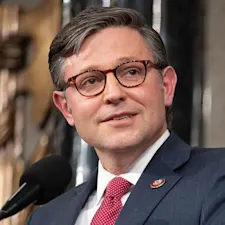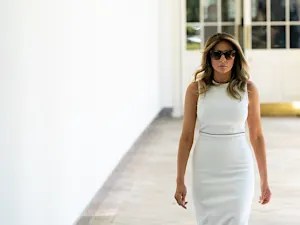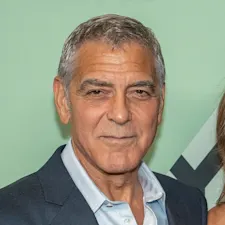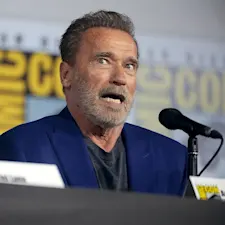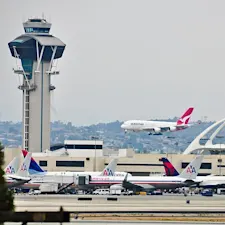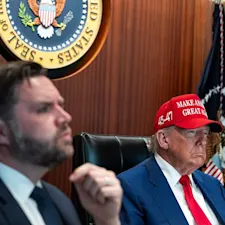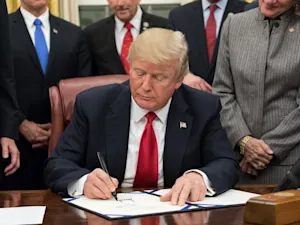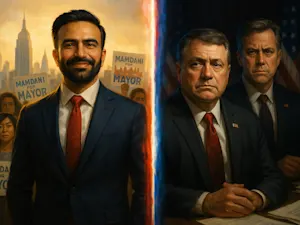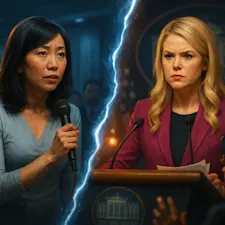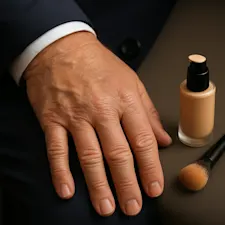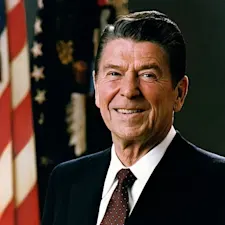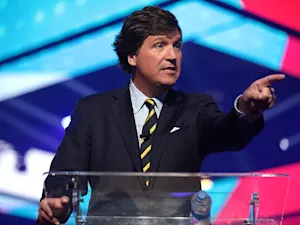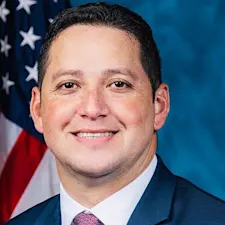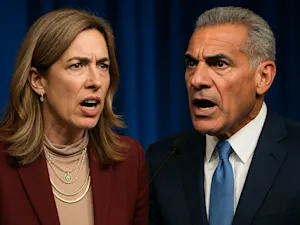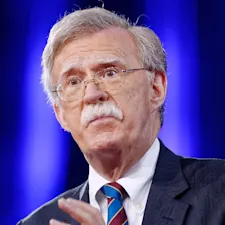
South Korea Crowns Trump Amid Protests and Trade Talks
Crown of Silla, 2013. Photo courtesy of Paul Yoon under CC BY 3.0.
Donald Trump's visit to South Korea turned into a spectacle fit for a monarch, complete with a massive gold crown and the nation's highest civilian honor. The ceremony, hosted by South Korean President Lee Jae-myung in the historic city of Gyeongju, was a lavish display of pageantry that drew both admiration and sharp criticism.
A Crown Fit for a President
Upon arrival, Trump was presented with a replica of an ancient gold crown, modeled after those worn by kings of the Silla kingdom, which ruled much of Korea for nearly a millennium. The crown, described by a Korean official as symbolizing "the divine connection between the authority of the heavens and sovereignty on earth," as reported by TIME, was a nod to leadership and strong authority.
Alongside the crown, Trump received the Grand Order of Mugunghwa, South Korea's highest honor. The award features a large medallion on a golden necklace and is traditionally reserved for heads of state. Trump reportedly responded saying, "It's as beautiful as it can possibly be... I'd like to wear it right now," according to the New York Post. Lee praised Trump's efforts to improve relations with North Korean leader Kim Jong Un, framing the award as recognition of a "golden age of the Korea-U.S. alliance," as reported by TIME.
The Dinner and Diplomatic Signals
The evening's menu was equally symbolic, featuring braised short ribs with American beef, Korean staples like kimchi, and mini beef patties served with ketchup — a playful nod to Trump's well-known culinary preferences. The meal was described as a "Korean Platter of Sincerity with U.S. Beef," as reported by the New York Post, underscoring the blend of cultures and the diplomatic warmth intended by the hosts.
President Lee also used the occasion to discuss serious matters, including South Korea's plans to increase military spending amid ongoing tensions on the Korean Peninsula. He sought Trump's approval for a plan to provide nuclear fuel for South Korea's nuclear-powered submarines, highlighting the strategic depth of the visit.
Protests and Public Backlash
The grandeur of the ceremony did not go unnoticed by critics. Just weeks before Trump's visit, massive "No Kings" protests swept across the United States, with organizers claiming participation of 7 million people in major cities, as reported by the New York Post. The protestors reportedly opposed what they saw as monarchical tendencies in Trump's leadership style.
In South Korea, similar sentiments surfaced. Civic groups and opposition politicians staged protests near the ceremony venue, chanting "No kings: Trump not welcome," as reported by TIME. Some South Koreans expressed frustration with Trump's trade policies, including high tariffs and demands for foreign investment.
Kim Sol-yi, a 22-year-old college student who joined a protest in Seoul, told the BBC that the U.S. approach made her question whether America viewed South Korea as an equal ally, suggesting South Korea is instead treated as a "cash cow," as reported by TIME.
The protests underscored a tension between the ceremonial honors and the realpolitik of U.S.-South Korea relations.
The Symbolism of Monarchy in Modern Diplomacy
The lavish display of monarchical imagery raised questions about the appropriateness of such symbolism in contemporary U.S. diplomacy. Critics worry that the pageantry, including the golden crown and the highest civilian honor, could be seen as endorsing a style of leadership that echoes royal affirmation rather than democratic governance.
Trump's own response to the "No Kings" protests in the U.S. added fuel to the fire. He posted a meme of himself wearing a crown and flying a fighter jet named "King Trump," dropping sewage on protesters, as reported by the New York Post. The image was widely circulated and interpreted as a provocative embrace of monarchical imagery.
A Diplomatic Play for a 'Golden Age'
Despite the controversy, the ceremony was part of a broader diplomatic strategy. South Korean President Lee framed the crown and the award as symbols of a "new golden age" in the Korea-U.S. alliance, as reported by the New York Post. The gifts were carefully chosen to flatter Trump's well-known affinity for gold and to reinforce the importance of the bilateral relationship.
The visit followed a stopover in Japan, where Trump was gifted a golf putter once owned by the late Prime Minister Shinzo Abe, a close friend of Trump's. The Japanese also reportedly served American rice, a nod to Trump's demands to lift import restrictions on the grain.
Trade talks appeared to benefit from the goodwill generated by the visit. Both countries announced a broad trade deal, reportedly agreeing to cut reciprocal tariffs to 15%, a move that South Korean officials credited to the strengthened alliance.
Lee's remarks acknowledged the ongoing conflict on the Korean Peninsula, describing it as a "technical" war and emphasizing South Korea's commitment to increasing military spending, as reported by the New York Post. The nuclear fuel plan for submarines was part of this strategic defense posture, with Lee seeking Trump's support to "get that all straightened out."
The Balancing Act
South Korea finds itself in a delicate position, balancing its security alliance with the U.S. against economic ties with China. Analysts note that South Korea views the U.S. as an indispensable security ally but also sees China as an essential economic partner. The visit and the ceremonial honors to Trump reflect this complex diplomatic dance, as Seoul seeks to maintain strong ties with both superpowers.
Royal Ending
The gold crown. The highest civilian honor. The five-course dinner. Trump's visit to South Korea had all the trappings of a state visit fit for a monarch.
But the symbolism didn't land quietly.
Just days after millions joined "No Kings" protests across the U.S., Trump was handed a crown modeled after ancient Korean royalty. In Seoul and Washington, critics questioned the optics. Supporters called it respect. Opponents called it theater.
Whether seen as strategic diplomacy or pure pageantry, the images are already locked in — Trump, crowned abroad, at the center of another global flashpoint.
References: Trump gets huge gold crown in South Korea as host hails his 'golden age' | Donald Trump Lusts Over More Gold on Asia Trip as South Korea Crowns Him in Bling | Trump Greeted Like a King in South Korea


